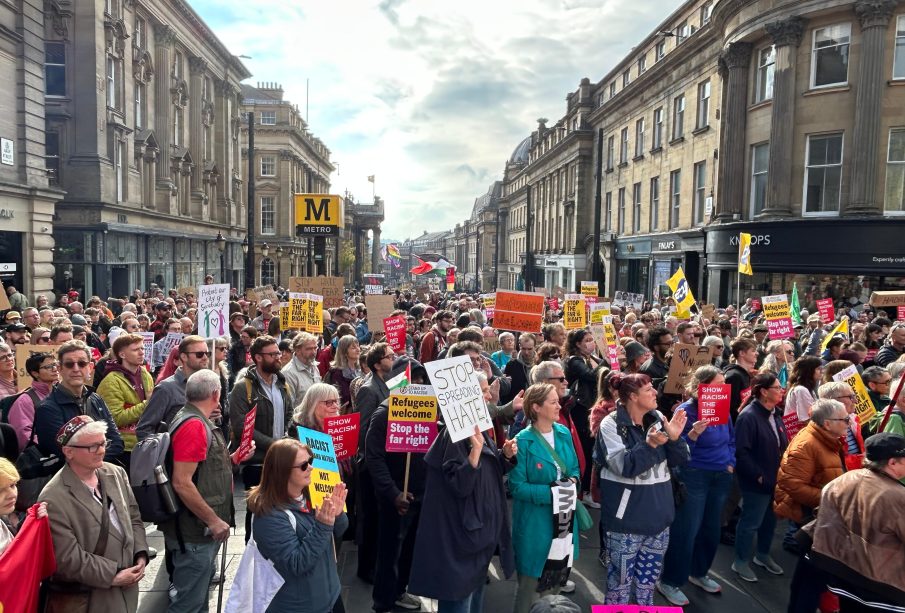Recent Protests in Newcastle: A Community Response

Introduction
Newcastle, a vibrant city in the north-east of England, has recently been the epicentre of a series of protests addressing critical social issues. The protests, which have gathered significant media attention, reflect the community’s growing dissatisfaction with local policies, particularly concerning housing, employment, and environmental concerns. Understanding the dynamics of these protests is essential to grasp the broader implications for both Newcastle and the UK as a whole.
Main Body
On Saturday, 14 October 2023, thousands of residents took to the streets of Newcastle in a coordinated effort to voice their concerns over rising living costs and inadequate public services. The demonstrations were organised by a coalition of local activist groups, including Stop Housing Insecurity and Newcastle Against Austerity.
Participants carried banners and chanted slogans calling for urgent government action. Key themes included calls for affordable housing, better job opportunities, and stronger action on climate change. The protests began at Grey’s Monument and attracted a diverse crowd, from young students to older residents, all united in their demand for change.
Local leaders have expressed both support for the movement and concern over potential disruptions. Newcastle’s Mayor, Dame Margaret Phelan, acknowledged the right to protest but urged for discussions with protesters to address their grievances constructively. In a recent interview, she stated, “It’s crucial we listen to our citizens and engage in meaningful dialogue about these pressing matters.”
According to a recent survey conducted by Newcastle University, nearly 60% of locals expressed dissatisfaction with the current state of housing in the city, highlighting a pressing issue as more residents are priced out of the market. This statistic has underscored the urgency of the protests, drawing attention from both local and national media.
Conclusion
The recent protests in Newcastle signal a growing fervour among citizens who are passionate about addressing fundamental social issues that impact their daily lives. As the protests continue to unfold, they highlight a broader trend within urban centres across the UK, where community members are increasingly vocal about their needs and rights.
Looking ahead, the outcome of these protests may influence local government policies and spark discussions that extend beyond Newcastle. It raises critical questions about how cities can balance growth with the well-being of their residents. The significance of the Newcastle protests lies not only in their immediate demands but also in their potential to shape the future of community engagement and participation in local governance.









